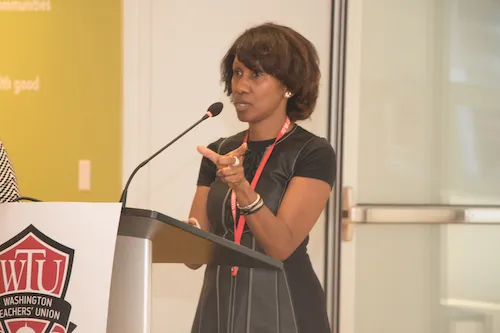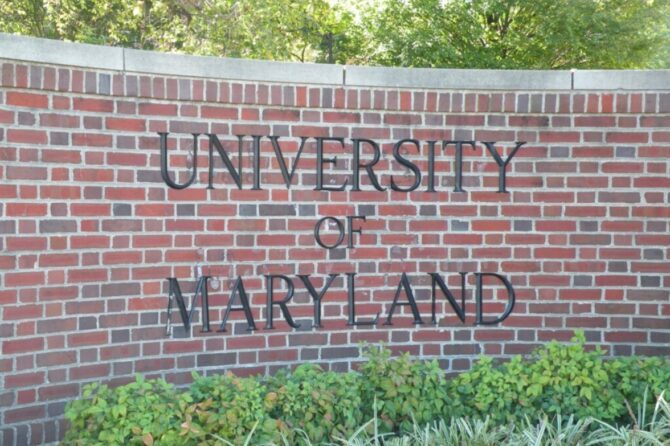WASHINGTON INFORMER: Several weeks after District public school teachers ratified their retroactive contract, the D.C. Council started deliberating on the long-awaited document that includes pay raises and other stipulations about benefits and planning time.
The council’s Committee on Executive Administration and Labor and the Committee of the Whole conducted a joint roundtable about the contract. Several District public school teachers discussed the next steps in their action plan at an event hosted by the D.C. Caucus of Rank-and-File Educators (DC-CORE), a contingent of the Washington Teachers’ Union (WTU).
David Ifill, a music teacher and DC-CORE member who participated in the meeting, said that the road to a contract has taken too long, and often without the direct input of educators.
“Teachers in my school are still asking when the D.C. Council is going to approve the contract,” Ifill said. “We have IMPACT for raises but if you don’t get a highly effective score or you’re not in a principal’s good graces, you don’t see a raise. There are teachers who are waiting. It took a long time to make it happen.”
WTU membership ratified the 2019-2023 contract shortly before Christmas. In early January, D.C. Council Chairman Phil Mendelson told The Informer that the contract was still on D.C. Mayor Muriel Bowser’s desk.
The council would later receive the contract on Jan. 26, where it has since gone before the Committee of the Whole and the Committee on Executive Administration and Labor, the latter of which is chaired by D.C. Council member Anita Bonds (D- At large).
WTU members and government witnesses were scheduled to speak before Bonds, Mendelson and other council members at the roundtable. Bonds’ office didn’t respond to an inquiry sent on Jan. 30 about how she plans to expedite the legislative process and ensure passage of the contract.
In November, WTU and Bowser reached a tentative agreement that included a 12 % pay raise over four years, a 4 % retention bonus, an increase in an administration premium and the inclusion of vision, dental and legal benefits.
Teachers under the new contract would receive an increase of $50 in annual startup funds that can be used to purchase classroom supplies.
Contract negotiations happened over more than three years, during which teachers left the classroom in droves. The trend sparked a movement to boost teacher retention and allow District public school teachers to run for D.C. State Board of Education.
Some of the teachers who stayed in the profession contracted COVID while helping young people transition back to in-person learning. They also grappled with the likelihood that the mission to improve test scores would affect their planning time.
Meanwhile, WTU continued organizing and even converged at the John A. Wilson Building. At one point discussions came to a standstill with Bowser and WTU President Jacqueline Pogue Lyons providing differing accounts of what caused the delay.
Throughout the negotiations, parents and other community members rallied around teachers. This movement not only highlighted concerns about the physical condition of school buildings and the mental strain placed on students and teachers, but the struggles that substitute teachers faced in the classroom.
With the contract in question scheduled to expire in June, WTU and Bowser will soon return to the bargaining table for another round of negotiations. Pogue Lyons said events of the last three years have laid the foundation for what she anticipates will be a productive discussion.
“This [process] is going on four years. Throughout this period, we had a pandemic, inflation, and high food and gas prices. This is an expensive city. We have a long way to go to keep great teachers but this is a start.”










